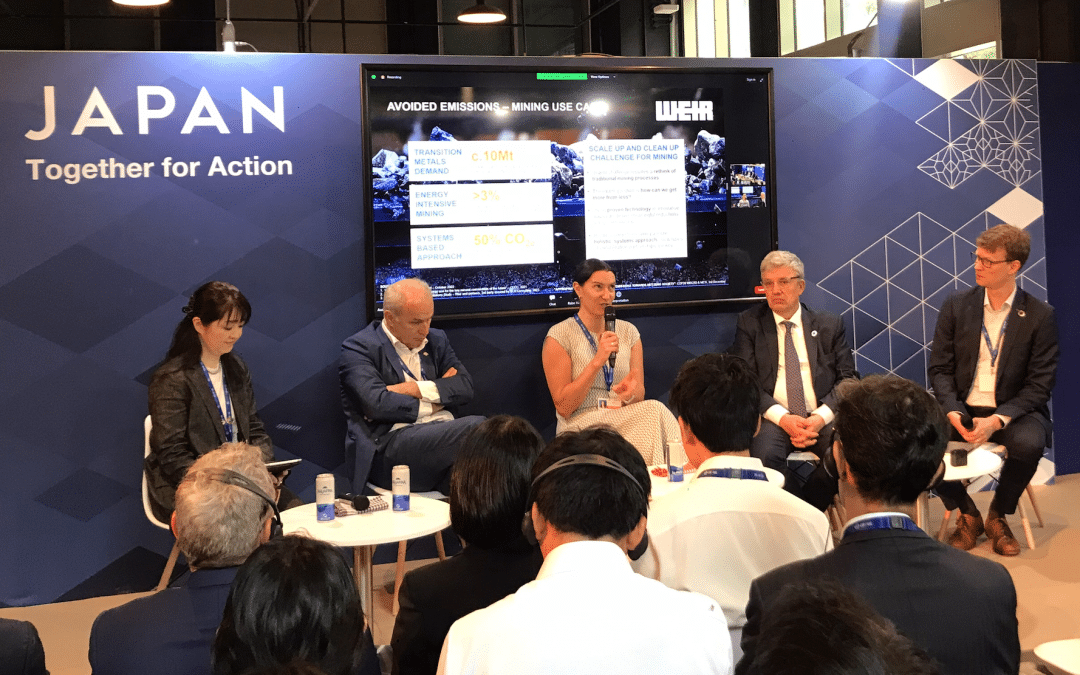The Weir Group PLC, a global mining technology leader, has completed a comprehensive study that highlights a significant opportunity to reduce energy use and emissions in comminution, the rock crushing process that is key to minerals
extraction, and that consumes around 3% of the world’s electrical power each year1.
The study shows that replacing conventional technology with innovative new solutions can cut
energy use by 40% while also avoiding 50% of CO2e emissions.
Speaking at a COP28 panel discussion hosted by the Ministry of Economy, Trade and
Industry of Japan and moderated by the World Business Council for Sustainable Development (WBCSD), Paula Cousins, Chief Strategy and Sustainability Officer at Weir revealed the details of the study that demonstrates how using innovative technologies to crush rocks can yield significant sustainability benefits at lower operating cost.

The findings of the study come at an important time. Metals, such as copper, nickel and
lithium, are critical elements of the technologies that will power a low carbon future and it is widely accepted that a substantial increase in the production of these metals is needed for the transition to net zero. In response, the mining industry is actively seeking to adopt new technologies which extract and process those metals in more energy efficient and
sustainable ways, alongside increasing the use of renewable power.
Weir’s study focuses on comminution – the crushing process that turns big rocks into tiny particles to expose the entrapped mineral so that it can be extracted later in the mining process. Comminution is the most energy intensive stage of a typical mine site process. It is already electrified and is responsible for at least one-third of an average mine’s energy use
and CO2e emissions1 and globally consumes around 3% of the world’s electrical power1.
Given its energy intensity, the decarbonisation opportunities in comminution are huge, with the basic comminution process not having changed significantly for many decades. Weir is collaborating with customers and other partners to redefine the process, developing innovative combinations of proven technologies to make significant improvements to
efficiency and environmental performance. Unveiling the study during the panel discussion at COP28, Paula Cousins, Chief
Strategy and Sustainability Officer at Weir said:
“The need for technology solutions in mining is compelling – the world needs more transition
metals to achieve net zero, but the mining industry needs to extract these using significantly
less energy and water. Our new, externally assured study highlights the potential for energy
savings of 40% and for 50% of CO2e emissions to be avoided in comminution, the most
energy intensive stage of mining processes. By adopting a systems-based approach to
technology collaborations, we can help the mining industry scale up and clean up at the
same time”.
The full video of the panel discussion will be made available to view by the Ministry of Economy, Trade and Industry of Japan shortly. About the avoided emissions study The study is the first to utilise WBCSD’s Avoided Emissions Guidance to study mining processes and the avoided emissions results have been independently assured by SLR Consulting Limited. Three of Weir’s technology combinations were evaluated against a conventional comminution circuit design for an archetypal mine processing 15 million tonnes of copper ore per year in Chile.
All three of the technology combinations are shown to yield sizeable benefits versus the traditional circuit. In the optimal combination, the comminution process consumes around 40% less energy and can avoid up to 50% of CO2e emissions. Importantly, there is no trade off elsewhere, as the redefined process uses less water too.



